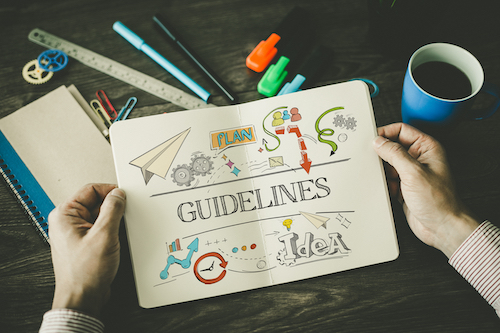Session and Speaker Guide
Everyone who attends the Natural Hazards Workshop has important information and experience to share. As such, Workshop sessions are organized to encourage maximum interaction between all attendees.
Speakers address topics through creative and interactive session types, while attendees contribute to the conversations by posing important questions to the speakers. All session types are designed to create conversations between everyone in the room. Please refer to the Workshop Schedule for dates, times, and descriptions of sessions.
Program Structure

The Workshop program has many session types including trainings, networking roundtables, poster presentations, a keynote address, plenaries, full panel sessions, TED-style talks, and more. We reserve plenty of time for additional networking during the 30-minute breaks and 90-minute lunches, as well as evening events throughout the week.
Training Sessions
Training Sessions focus on increasing professional skills and creating awareness about specific topics.
Networking Roundtables
Networking roundtables provide an opportunity for Workshop attendees to have informal conversations on distinct topics of importance in the field. They will have facilitator(s) to guide the conversation, but the goal of these sessions is to get everyone involved! Content is largely determined by the interests, experiences, and curiosity of the attendees. Networking roundtables do NOT involve presentations but instead encourage open dialogue and offer networking opportunities for everyone who attends.
Poster Sessions
Two poster sessions offer unique presentations Sunday and Monday evening. These are held concurrently with our evening receptions so attendees can gather and speak with the poster presenters. Participants are invited to present posters on new programs, projects, or recent research. Posters can be viewed throughout the Workshop or downloaded as a PDF on the Natural Hazards Center website.
Welcome and Self-Introductions
Natural Hazards Center Director, Lori Peek, will formally open the 50th Annual Natural Hazards Workshop with a brief orientation to the meeting. We will then turn to the long-standing tradition of self-introductions of everyone in the room — yes, everyone! Everyone who is able should be ready to stand and say their name and affiliation to get the Workshop going. Please don’t forget, this Workshop is an AFZ – Acronym Free Zone!
Keynote Address
After the Monday morning self-introductions, the keynote speaker will deliver a presentation that focuses on this year’s theme and provides the larger context for the Workshop.
Plenary Sessions
Plenary sessions will synthesize topics related to the theme of the Workshop. Each plenary session includes a diverse group of panelists who represent different sectors of the hazards community including policy, practice, and research.
Full Panel Concurrent Sessions
Full panel sessions are organized around the Workshop theme, as well as recent developments in the hazards and disaster field. Moderators in each session will engage the panelists in discussions related to recent disasters, the Workshop theme, and ongoing research, practice, and policy applications. These sessions are designed for groups to discuss their work, exchange ideas, and get feedback from audience members.
TED-Style Talks
There will be four sessions that include a series of five- to-seven-minute talks in a TED-Style format. These talks are opportunities to share research or practice ideas that are novel, compelling, and evidence based. Each session will feature several presentations organized around a common topic with time for Q&A at the end.
New Research, Policy, and Practice Sessions
These sessions are designed to share information on recently completed or ongoing research, programs, projects, and policy initiatives. Groups will present their work, exchange ideas, and get feedback from attendees.
Wrap Up and Call to Action
As is tradition, Natural Hazards Center Director, Lori Peek, will close the Workshop with a summary of the highlights of the event and a discussion of opportunities for the future, including actionable next steps that the hazards and disaster community can accomplish together.
Participation Guidelines
Those participating in the Workshop as a moderator, panelist, facilitator, speaker, presenter, or audience member should review our Participation Guidelines to make your Workshop a success.

Audience
The Workshop includes over 700 academics, practitioners, and policymakers with diverse backgrounds, experiences, and knowledge. Because of this diversity, it is helpful to define any discipline-specific terms and avoid the use of jargon and acronyms.
Highlights
All Workshop attendees are encouraged to submit a brief summary of their current work for the Research and Practice Highlights section of the Workshop website. Although these Highlights are not for presentation, they are an excellent way to network with others that share your interests.
Presentation Slides
PowerPoint or Google slides are allowed for all sessions except networking roundtables, which are focused on conversations between attendees.
All presenters should use the Workshop slide templates provided for guidance. We encourage you to use the slide deck as a visual tool, but it shouldn’t be a written replica of your presentation. Please keep slides simple, easy to read, and visually appealing.
Speaker Roles and Responsibilities
Moderator Role
Moderators help create an atmosphere where panelists from wide-ranging backgrounds can exchange ideas in a positive, constructive environment.
Moderators have four critical responsibilities:
Planning: Coordinate with session panelists in advance of the Workshop to formulate panel questions based on the session topic and the expertise of the panelists. We recommend that all groups meet virtually at least four weeks prior to the Workshop. Please give careful thought to designing the questions and prompts used in the session to make the most of the perspectives and experiences of each panelist.
Moderation: Introduce the panel topic and panelists, facilitate discussion, and ensure the question and comment period runs smoothly. Be sure to allow for responses from participants and encourage as many questions from the audience as possible.
Time Management: Keep the session on time and on track. Student volunteers will help with timekeeping, but moderators should be prepared to politely encourage panelists and audience members to keep their remarks brief and focused to allow maximum participation from the widest range of people possible. All Workshop sessions start and end on time.
Collecting Presentation Slides: Collect PowerPoint or Google slides from panelists before the Workshop and making sure they are loaded to the laptop provided by the Omni Hotel at least five minutes prior to the session start time to avoid delays. Laptops can be found on the podium in each session room. Volunteers will be available to help as needed.
Submit Final Slides: Once your session is complete, please submit the final slides from all speakers to your session handler. They will provide you will submission instructions via email. These slides will be posted on the session page.
Panelist Role
Panelists are invited to participate in Workshop sessions because of their experience, knowledge, and expertise. They play an integral role in the success of the Workshop.
A panelist has two primary responsibilities:
Share Expertise and Experience: Panelists will each be given about 10 minutes to present their ideas, respond to moderator questions, and/or interact with each other as a panel—depending on the format the panel decides on before the Workshop—before the moderator opens the floor to audience questions.
Engage the Audience: Panelists serve as provocateurs for creating conversations with those in the audience, who are often experts in their own right with important stories and information to share.
Moderators will organize coordination meetings before the Workshop. We strongly encourage panelists to attend all such meetings to ensure their individual knowledge is well incorporated into the session.
Facilitator Role
Facilitators guide Workshop training sessions or networking roundtables.
Training session facilitators should determine what skills they want attendees to acquire and prepare materials and activities accordingly.
Networking roundtable facilitators should help to ensure attendees can get to know one another, provide question prompts or networking activities, and exchange ideas about pressing topics in the hazards and disaster field. All facilitators strive to engage and inform roundtable attendees.
TED-Style Talk Speaker Role
TED-Style Talk speakers will prepare a short five-to-seven-minute individual presentation, using guidance and slide templates from the Natural Hazards Center. Speakers are encouraged not to change the overall structure of these slides, but to add their own individual presentation components. All speakers are required to attend at least one pre-Workshop virtual session to review expectations and guidelines for these talks.
Presenter Role
New research, policy, and practice sessions are dedicated to program or project updates of broad interest to the hazards and disaster community. In these one-hour sessions, presenters succinctly share their work. We also ask that at least 15 minutes is reserved for audience questions and feedback after the presentations. The moderator and presenters will need to meet in advance to plan the approach and format of the session.